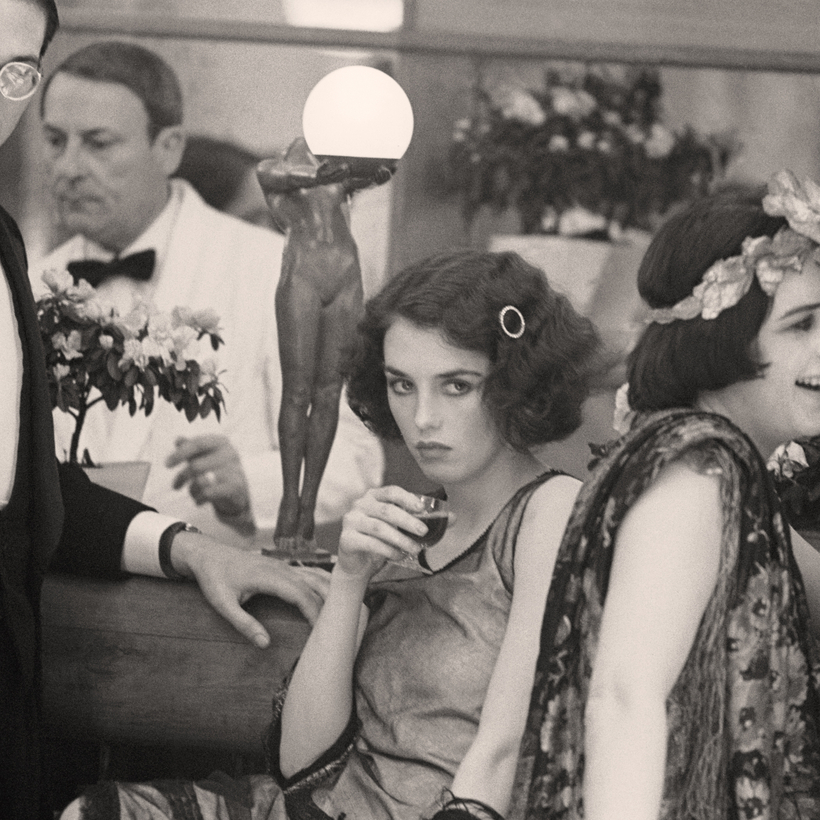The Jean Rhys re-discovery story is legendary. In 1949, an appeal published in The New Statesman for information about the author of the interwar novels Quartet, After Leaving Mr. Mackenzie, Voyage in the Dark, and Good Morning, Midnight—presumed dead because nothing had been heard of her for many years—was answered by the author herself: not dead at all but buried alive by penury and alcoholism. Not dead and, as it happened, in the midst of writing the post-colonial masterpiece Wide Sargasso Sea, which would bring her much late-life acclaim. Up until the happy ending, it could be a story out of one of Rhys’s own novels.
In her new biography of the British novelist, I Used to Live Here Once, Miranda Seymour makes her first point about her subject by using the many identities behind which she concealed herself as section headings. Before she settled on Jean, Rhys was born Gwen Williams and then became Ella—sensitive child and then waif-like chorus girl, left brokenhearted in London at 21 when her wealthy lover turned out to have no intention of marrying her.

A new name arrived with Jean Lenglet, the charming, frequently arrested first husband who took her away to Paris, neglecting to mention his existing wife. It was there, under the literary mentorship of her lover Ford Madox Ford, that she fledged into Jean Rhys, author of a shocking but promising collection of stories, The Left Bank, which was published in 1927. Ford introduced her to the literary agent Leslie Tilden Smith, who took over the maintenance of this low-voiced enigma—and became the next husband.
Rhys could be thin-skinned and resentful, and was prone to drunkenness, vulgarity, and screaming, foulmouthed rants. She and Smith were once arrested for brawling in Soho at four A.M. Her books were considered just as sordid, and after the poor reception of Good Morning, Midnight, in 1939, Rhys didn’t produce a novel for decades.
A true unraveling set in during the Second World War. Her daughter and only surviving child (a baby son had died in Paris in 1920) was trapped in Nazi-occupied Holland with Lenglet. There were arrests, involuntary spells in hospitals. Widowhood and re-marriage (to Max Hamer, a cousin of Smith’s) did not reverse the spiral. Years were spent under the hostile surveillance of neighbors in respectable suburbs, with occasional excursions to the magistrates’ court.
Rhys’s work summons the image of a certain type. In her fiction, women tend to drift from protector to protector. Their spirits are crushed by the indifference of others and the sheer, unremitting bleakness of gray cities like London and Paris. They suffer abortions, descend into fevers in shabby hotels, or they go mad and are imprisoned in the attic while the good girl downstairs takes the husband. They are, as Julia Martin’s Mr. Mackenzie concludes of her in After Leaving Mr. Mackenzie, “female[s] without the instinct of self-preservation.”

So much of Rhys’s fiction drew on her life that she has long been mistaken for her own creations. Yet there are almost no letters from the first 40 years of Rhys’s life to confirm or deny, and she left no diaries—only exercise books in which she wrote vignettes of memoir, or fiction, or both, or neither. Seymour gets pieces together episodes of Rhys’s biography by way of long comparisons with her stories, an approach that does justice neither to the life nor to the work. She is also frustratingly qualified in her praise for Rhys. Calling her “one of the best women writers of the twentieth century” and “perhaps the finest English woman novelist of the twentieth century” makes it sound as though her work couldn’t hold its own against the male mammoths of the time. But who reads Ford Madox Ford anymore?)
In her sensitive rendering of the chaos that was Rhys’s life, Seymour quotes a local newspaper report of one of the novelist’s arrests, during which “an upstanding member of the … community … doused the obstreperous female with a bucket of cold water.” Rhys was intensely aware of the indignities of her life, of the messy behavior and her subsisting on so many favors. As the great Russian satirist Teffi once put it, “A joke is not so funny when you’re living inside it.” Rhys wrote the tragedy of the joke from the inside. “When you sink,” Sasha Jensen, the descending woman in Good Morning, Midnight, observes, “you sink to the accompaniment of loud laughter.”

The helpless, drunken despair of some of Rhys’s heroines can obscure the protest and the fury of her work. Her canny fluency in power and its imbalances is what she put of herself into her fiction. Her heroines seem passive, but it would be truer to call them evasive. Little Anna Morgan in Voyage in the Dark absents herself from the unpleasantness of disempowerment by being vague, by staring out of the window and thinking of other things. “Passive” is the wrong word for women who have so little agency. They are simply playing the terrible hand they’ve been dealt in a society that offers protection only to women prepared (or able) to live within its rigid codes. Their feeble rebellions can only ever be self-destructive.
There’s often a tone of condescension in accounts of Jean Rhys. Seymour does her the justice of treating her seriously. She can see the obvious rejoinder to all those people who chuckled about how helpless and hopeless Rhys was. After all, she survived, didn’t she? She defied the kind of misfortunes and blood-alcohol levels that would have floored an ox to live to nearly 90.
More to the point, she ground a defiant literary response out of it all. “Writing,” she once told her daughter, “can be (among other things) a safety valve.” Here, as Seymour identifies, is the crucial difference between Rhys and the Rhys woman. She had writing; they did not.

Sarah Watling is a London-based writer and the author of Noble Savages: The Olivier Sisters
